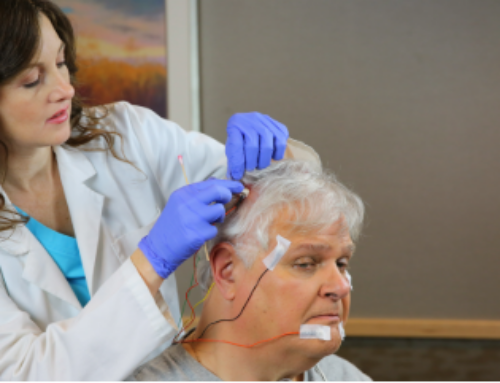Sleep is a cornerstone of our daily lives, impacting everything from our mood to our physical health. But with so many factors affecting our ability to rest well, it’s no wonder sleep can sometimes feel like a mystery. Here, we discuss some of the top questions about sleep, shedding light on common concerns and providing practical tips for achieving better rest.
1. How much sleep do I really need?
The optimal amount of sleep varies depending on factors such as age, lifestyle and individual needs. Generally, adults should sleep 7 or more hours per night for optimal functioning, while children and teenagers need more sleep. However, it’s essential to listen to your body and adjust accordingly.
The American Academy of Sleep Medicine recommends:
- Infants 4 months to 12 months should sleep 12 to 16 hours per 24 hours (including naps)
- Children 1 to 2 years of age should sleep 11 to 14 hours per 24 hours (including naps)
- Children 3 to 5 years of age should sleep 10 to 13 hours per 24 hours (including naps)
- Children 6 to 12 years of age should sleep 9 to 12 hours per 24 hours
- Teenagers 13 to 18 years of age should sleep 8 to 10 hours per 24 hours
- Adults should sleep 7 or more hours per night
2. What are the consequences of not getting enough sleep?
Sleep deprivation can have far-reaching effects on physical and mental health. Short-term consequences may include impaired cognitive function, mood disturbances and weakened immune function. Long-term consequences can include an increased risk of chronic conditions such as obesity, type 2 diabetes and cardiovascular disease. Sleepiness and fatigue on the job may lead to lost productivity, difficulty thinking creatively and more errors and accidents.
3. How can I improve my sleep quality?
Improving sleep quality involves adopting healthy sleep habits. This includes maintaining a consistent sleep schedule, creating a relaxing bedtime routine, optimizing your sleep environment, avoiding stimulants like caffeine and screens before bed and engaging in regular physical activity. It’s important to set a bedtime that allows you to get enough sleep. Use a bedtime calculator to identify an appropriate bedtime based on your age and wake time.
4. What are the signs of a sleep disorder?
There are a variety of sleep disorders. Some are common, while others are rare. Common signs of sleep disorders include difficulty falling or staying asleep, excessive daytime sleepiness, loud snoring, pauses in breathing during sleep, restless legs and abnormal behaviors during sleep. If you suspect you have a sleep disorder, consult a health care professional for evaluation and diagnosis.
5. Should I see a sleep specialist?
If you’re experiencing persistent sleep problems or suspect you have a sleep disorder, it’s advisable to see a sleep specialist at an accredited center. These professionals have specialized training in diagnosing and treating sleep disorders and can provide personalized treatment recommendations based on your specific needs.
6. What role does technology play in sleep?
While technology can offer helpful tools for tracking sleep patterns and promoting relaxation, excessive screen time before bed can disrupt sleep quality. It’s essential to establish boundaries around technology use in the evening and create a technology-free bedtime routine to promote better sleep. It’s recommended to turn off electronic devices at least 30-60 minutes before bedtime.
7. How does nutrition affect sleep?
Diet plays a significant role in sleep health. Consuming a balanced diet rich in nutrients and avoiding heavy meals, caffeine, and alcohol close to bedtime can promote better sleep quality. Certain foods, such as those high in tryptophan, may also have sleep-promoting properties. Explore five foods that support good sleep and five drinks to avoid before bedtime.
8. Is napping beneficial?
Napping can be beneficial for some people, especially if they’re experiencing daytime fatigue or sleepiness. However, naps should be limited to 20-30 minutes and taken earlier in the day to avoid interfering with nighttime sleep. If you’re having trouble sleeping at night, it may be best to avoid napping altogether.
9. What can I do if I have trouble falling asleep or staying asleep?
If you’re struggling with insomnia, there are several strategies you can try to improve sleep quality. Adopt healthy sleep habits, known as “sleep hygiene,” to improve your ability to fall asleep and stay asleep. These include establishing a consistent bedtime schedule and routine and limiting exposure to devices before bedtime. When people struggle with insomnia, sleep hygiene is an important part of cognitive-behavioral therapy for insomnia (CBT-I), the recommended treatment for chronic insomnia in adults. View a directory of behavioral sleep medicine providers who offer CBT-I.
10. How does age affect sleep?
Sleep patterns naturally change with age, with older adults typically experiencing lighter and more fragmented sleep. Young children and teenagers require more sleep than adults due to their rapid growth and development. Understanding these age-related changes can help individuals adjust their sleep habits accordingly. Learn more about healthy sleep in infants, children, teenagers and adults.
Remember that everyone’s sleep needs are unique, so it’s essential to listen to your body and seek professional guidance if you’re experiencing persistent sleep problems. With the right knowledge and habits, you can achieve better sleep and wake up feeling refreshed each day.
Medical review by Katherine Moawad, DO
Related:
- Sleep FAQs
- Sleep myths: Separating fact from fiction
- Improve your sleep in five simple steps
- How technology is helping – and hurting – your sleep
- How sleep deprivation ages you quicker
- Sleep and growing older





